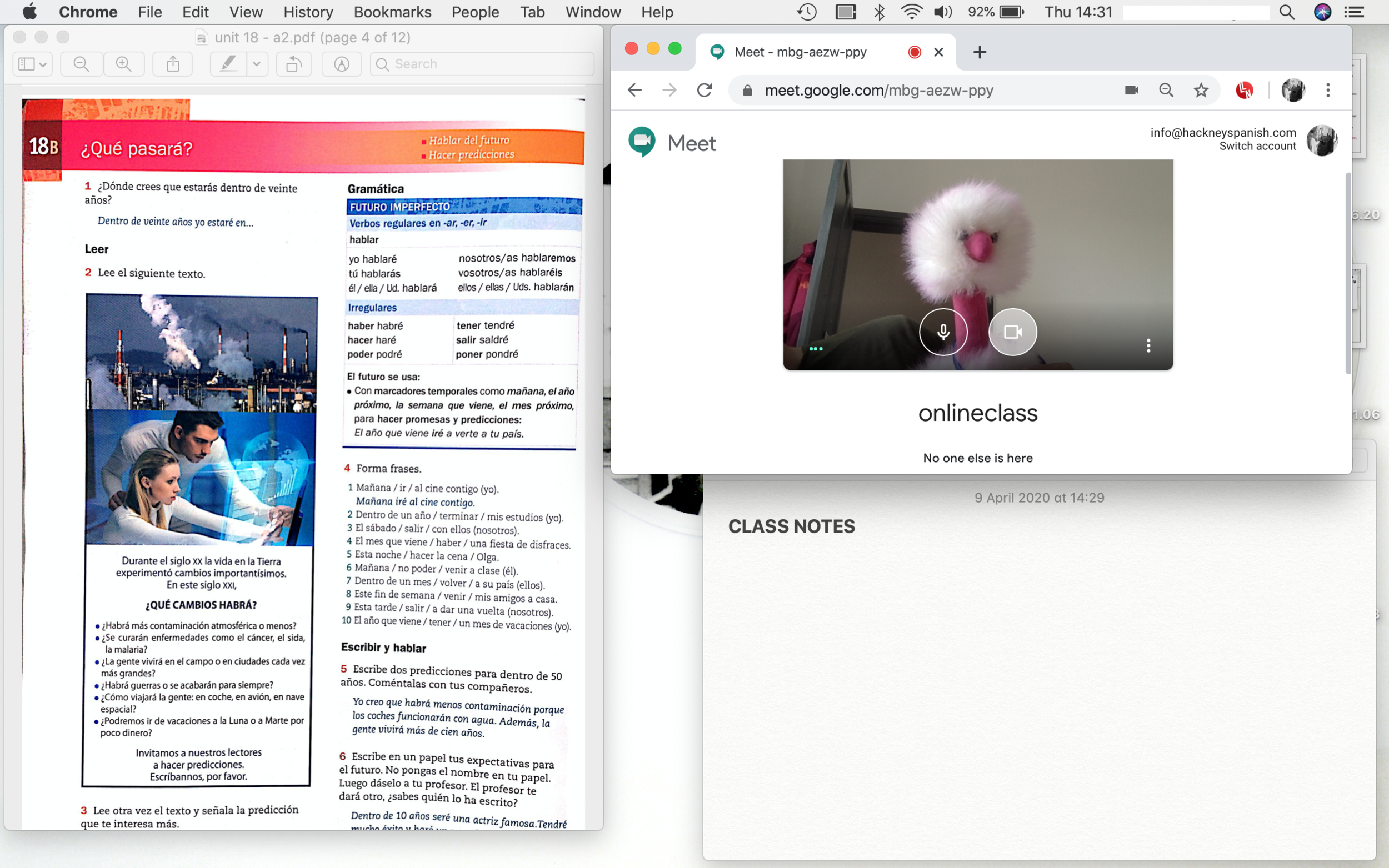6. Be familiar with the rules of the classroom. Delivering an online class is slightly different from delivering a class in person. Your tutor — if it’s good like our tutors ;) — will minimise this by leading the class in a more managed way. S/he’ll probably use your name more, indicate when you are expected to talk, and so on. When you are teaching an online lesson you miss many of the normal indicators that you’d have in a face to face (irl) setting, but there are other way to compensate. In our first class, we always make sure to make the rules of the classroom clear, whether for online learning or face to face. If you mistakenly decided to learn Spanish elsewhere make sure you ask in the first class how things will work, so that you can get disappointed when no one knows how things will work, then come to us. (That’s a joke by the way — you should come to us without wasting time elsewhere first!). The reality is that once these things are clear, e-learning isn’t that different from learning in a classroom.
If you mistakenly decided to learn Spanish elsewhere make sure you ask in the first class how things will work, so that you can get disappointed when no one knows how things will work, then come to us.
7. Don’t have in your computer anything you don’t want others to see! Sometimes during an e-class you might be asked to share your screen in order for the teacher to see how you did a certain task. In fact, not having in your computer things you don’t want others to see is a motto you should incorporate as part your whole life.
8. Avoid the “dolly shot”. We teach very creative people and we invite creativity in our classes. We would love to make films too. But leaving the laptop / tablet / phone still while the camera is on, instead of taking it for a walk around the house, is good etiquette. Otherwise you will end up with a dolly shot like this one by Spike Lee. It’s a great dolly shot. But it’s likely to make others in the class dizzy.
9. The mute button is your friend. Really. Use it. You will be very likely at home. There will be interruptions. Just hit that mute button when you need to attend to whatever is not a part of the class.
10. Get to know the class software before the class starts. Most likely you will receive a link for the class with plenty of time in advance — log in a few moments before the class and explore your virtual classroom like you would do with a real classroom on the first day of your course.
11. Relax and learn. Online classes are flexible, comfortable, and a great way of learning and meeting people without leaving your home. Ideally we all like to meet irl. But when and while this is not possible, make the best of your online experience. The important thing is to keep doing the things you want, with the people you like.


